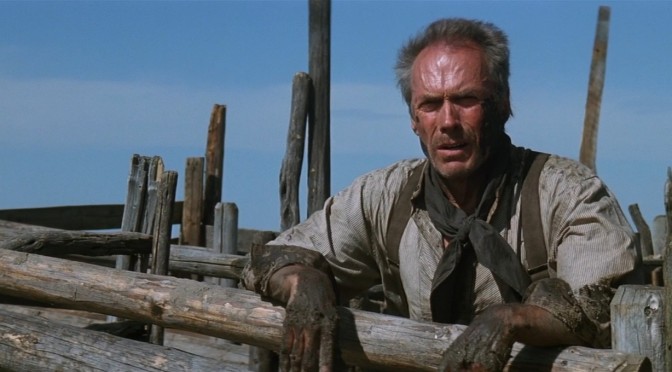My number one pet peeve with Christian films is their unrealistic characters. Christian protagonists seem to be too good to be true, almost inhuman. Even the flawed characters tend to transform into a super Christians with ease.
What little struggles they encounter are quickly remedied by a traditional Bible verse or principal. It’s like they have the entire Bible memorized and are able to tackle any surprise life throws their way, rarely showing any sign of frustration or anger, as if they’ve clicked their heels together and aren’t in Kansas anymore!
I haven’t met another Christian yet who doesn’t have struggles in life. In fact the Bible is clear that mankind is broken. I see more realistic characters in regular films.
Most superhero films have harnessed the strength of showing their heroes’ weaknesses. There protagonist’s struggles are part of character development.
Character?
A lot of writers don’t realize where the term “character” comes from. In writing, character is used to identify a specific personality. It is made up of unique characteristics: they can be physical, psychological or emotional, they are unique to an individual.
The dictionary defines character as a trait, quality or distinct feature that makes them different from other people. In the recovery movement, scars, mistakes and flaws make you who you are—good or bad. Imperfections are part of a person’s character as well.
When my parents died, I inherited a lot of the family heirlooms. We’ve had some most of my life and over the years some have been dented or scratched after moving around. Each imperfection has a unique story or memory attached to them.
My favorite family heirloom is an old grandfather clock my parents bought when we lived in Italy. It has a few scratches along the base, but they don’t take away from the beauty of the clock’s persona.
Unless you took time to look it over you’d probably never notice its minor shortcomings. I can guarantee there isn’t another clock in the world just like it–it is uniquely flawed.
To me that is the essence of character, not perfection. Some of Hollywood’s most memorable characters aren’t exactly the picture-perfect ones. Who can forget Jack Nicholson in The shining?
Face it, none of us are perfect and we can all relate to characters that aren’t picture-perfect manifestations of someone’s imagination.
When we see realistic characters that overcome their issues and sometimes even save the day, it gives us hope. Maybe, even with our seemingly broken lives, things can turn around too.
One benefit of realistic characters is there is an endless source of material in our lives. You don’t have to look too far to find someone who isn’t perfect.
I got the idea for the Muse in my screenplay from a lunch I had with my best friend in college. While we were eating, he crammed his mouth with ketchup covered French fries.
As he talked, ketchup caked the corners of his mouth like lipstick; I couldn’t help but laugh every time I looked at him. To make matters worse we were discussing women we were each interested in going out with, they had personalities we both wanted to forget.
Even if you live the life of a reclusive writer, there are plenty of resources to help you develop memorable characters. I’ve listed a few resources below.
- Screenwriting websites like Screencraft, Script Magazine
- books like Dave Trotter’s The Screenwriters Bible
- The Art of Creating Character for fiction film and TV by David Corbett
- Jerry Jenkins’ Writers Guild
- Aaron Sorkin’s Master Class on screenwriting.
- Writers conferences like the Blue Ridge Mountains Christian writers conference
- The Atlanta Pitch Summit
- Write to Ignite conference
Often established writers want to help aspiring authors and screenwriters to learn the craft and share their technique for creating characters people won’t forget. Seven years ago I had the opportunity to learn from a smorgasbord of Christian writers through a professional writing program. Author DiAnn Mills is still my biggest supporter today.
Support?
Speaking of support, we can’t forget the pivotal role that supporting characters play in film. Supporting characters need to be just as interesting as your leads, but not too overpowering.
Recently, while watching the World Cup, the Brazilian coach stated he didn’t want to pull his best player out, but also knew he needed to respect the unique characteristics of each player.
A good supporting cast can enhance a main character’s personality or interact with them to give them another level of humanity. Everyone works together like a team to bring the whole story you’re trying to present out.
One of my favorite films comes to mind, who can forget Danny Zuko’s friends in the movie Grease or Sandy’s new friends? Each personality interacted together to help keep it real.
Martin Johnson survived a severe car accident with a (T.B.I.) Truamatic brain injury which left him legally blind and partially paralyzed on the left side. He is an award-winning Christian screenwriter who has recently finished his first Christian nonfiction book. Martin has spent the last nine years volunteering as an ambassador and promoter for Promise Keepers ministries. While speaking to local men’s ministries he shares his testimony. He explains The Jesus Paradigm and how following Jesus changes what matters most in our lives. Martin lives in a Georgia and connects with readers at Spiritual Perspectives of Da Single Guy and on Twitter at mtjohnson51.






1 Comment
The imperfect characters are definitely windows into each others’ lives and mirrors that reflect our own. I can’t say Jack Nicholson’s character in The Shining is a mirror for me, however!